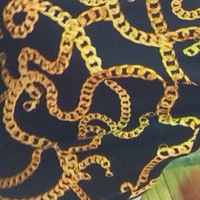
Переведите на анг плиз Кулиев Кайсын Шуваевич (1917 - 1985), балкарский поэт. Родился 1 ноября в
старинном балкарском ауле Верхний Чегем в семье скотовода и охотника. Вырос в горах. Ребенком потеряв отца, прожил трудное детство, очень рано начал работать. В 1926 поступил в только что открывшуюся школу в Нижнем Чегеме, где впервые увидел книги, начал учить русский язык. В 10 лет написал первые свои стихи. После школы учился в техникуме в Нальчике, заполняя толстые тетради своими стихами. В семнадцать стал печататься в газетах. В 1935 Кулиев приезжает в Москву и, хотя твердо решил стать поэтом, поступает в Театральный институт (ГИТИС), где изучались все области искусства и культуры, чтобы стать хорошо образованным человеком. Одновременно слушал лекции в Литературном институте, продолжая писать стихи. В 1939, окончив институт, возвращается в Нальчик, преподает в учительском институте литературу. В 1940 выходит первая книга стихотворений "Здравствуй, утро!". В 1940 был призван в ряды Красной Армии, служил в парашютно-десантной бригаде. Весной 1941 бригаду направили в Латвию, где Кулиев и встретился с войной. После тяжелых боев под Орлом был ранен, попал в госпиталь. Писал много стихов, которые печатали в газетах "Правда", "Красная звезда" и др. Позже воевал на Сталинградском фронте уже в качестве военного корреспондента газеты "Сын Отечества". Участвовал в боях за освобождение южных городов, снова был ранен, долго лечился в госпиталях. В годы войны написал несколько циклов стихов - "В час беды", "О тех, кто не вернулся", "Перекоп" (1942 - 44). В 1945 уехал в Киргизию, работал в Союзе писателей (по рекомендации Н.Тихонова), писал стихи, но не мог публиковать их (балкарский народ был переселен Сталиным во время войны). Занимался переводами. В мае 1956 Кулиев приехал в Москву, где Н.Тихонов способствовал изданию книги стихов "Горы", вышедшей в 1957; в этом же году в издательстве "Молодая гвардия" вышла вторая книга - "Хлеб и роза". В том же 1956 Кулиев вернулся в Нальчик. Наконец он смог стать профессиональным литератором. В свет выходят поэтические сборники: "Раненый камень" (1964), "Книга земли" (1972), "Вечер" (1974), "Вечерний свет" (1979), "Краса земная" (1980) и др. В 1985 К.Кулиев скончался. 0
0
 0
0
Ответы на вопрос
 Внимание! Ответы на вопросы дают живые люди. Они могут содержать ошибочную информацию, заблуждения, а также ответы могут быть сгенерированы нейросетями. Будьте внимательны. Если вы уверены, что ответ неверный, нажмите кнопку "Пожаловаться" под ответом.
Внимание! Ответы на вопросы дают живые люди. Они могут содержать ошибочную информацию, заблуждения, а также ответы могут быть сгенерированы нейросетями. Будьте внимательны. Если вы уверены, что ответ неверный, нажмите кнопку "Пожаловаться" под ответом.

 0
0
 0
0

Kaysyn Shuvaevich Kuliev (1917 - 1985), a Balkar poet
Kaysyn Shuvaevich Kuliev was a Balkar poet born on November 1 in the ancient Balkar village of Verkhniy Chegem in a family of a cattle breeder and hunter. He grew up in the mountains and had a difficult childhood after losing his father. Despite the challenges, he started working at a very young age. In 1926, he enrolled in a newly opened school in Nizhniy Chegem, where he saw books for the first time and began learning the Russian language. At the age of 10, he wrote his first poems. After finishing school, he studied at a technical school in Nalchik while filling thick notebooks with his poems. At the age of seventeen, his poems started getting published in newspapers. In 1935, Kuliev came to Moscow with a firm decision to become a poet. However, he enrolled in the Theater Institute (GITIS) to study various fields of art and culture to become a well-educated person. At the same time, he attended lectures at the Literary Institute and continued writing poetry. After graduating from the institute in 1939, he returned to Nalchik and taught literature at a teacher's institute. In 1940, his first book of poems, "Hello, Morning!" was published. In the same year, he was drafted into the Red Army and served in a parachute landing brigade. In the spring of 1941, his brigade was sent to Latvia, where he encountered the war. After heavy fighting near Orel, he was wounded and hospitalized. He wrote many poems during this time, which were published in newspapers such as "Pravda," "Krasnaya Zvezda," and others. Later, he fought on the Stalingrad Front as a war correspondent for the newspaper "Son Otechestva" (Son of the Fatherland). He participated in battles for the liberation of southern cities, was wounded again, and spent a long time in hospitals. During the war years, he wrote several cycles of poems, including "In Times of Trouble," "About Those Who Did Not Return," and "Perekop" (1942-44). In 1945, he moved to Kyrgyzstan and worked at the Union of Writers (recommended by N. Tikhonov), writing poems that he couldn't publish (the Balkar people were deported by Stalin during the war). He also worked on translations. In May 1956, Kuliev came to Moscow, where N. Tikhonov helped publish his book of poems "Mountains," which was released in 1957. In the same year, his second book, "Bread and Rose," was published by Molodaya Gvardiya Publishing House. In 1956, Kuliev returned to Nalchik and finally became a professional writer. He published several poetry collections, including "The Wounded Stone" (1964), "The Book of the Earth" (1972), "Evening" (1974), "Evening Light" (1979), "Earth's Beauty" (1980), and others. Kaysyn Kuliev passed away in 1985.
 0
0
 0
0
Топ вопросов за вчера в категории Английский язык
Последние заданные вопросы в категории Английский язык
-
Математика
-
Литература
-
Алгебра
-
Русский язык
-
Геометрия
-
Английский язык
-
Химия
-
Физика
-
Биология
-
Другие предметы
-
История
-
Обществознание
-
Окружающий мир
-
География
-
Українська мова
-
Информатика
-
Українська література
-
Қазақ тiлi
-
Экономика
-
Музыка
-
Право
-
Беларуская мова
-
Французский язык
-
Немецкий язык
-
МХК
-
ОБЖ
-
Психология
-
Физкультура и спорт
-
Астрономия
-
Кыргыз тили
-
Оʻzbek tili




















